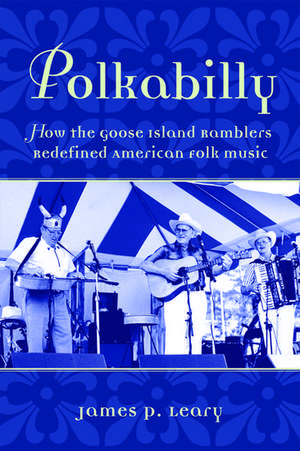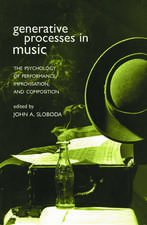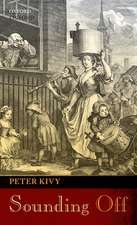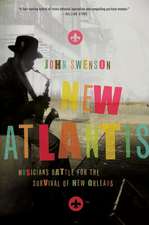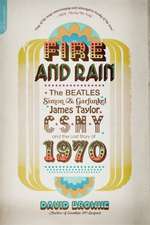Polkabilly: How the Goose Island Ramblers Redefined American Folk Music: American Musicspheres
Autor James Learyen Limba Engleză Paperback – 11 noi 2010
Din seria American Musicspheres
- 18%
 Preț: 166.27 lei
Preț: 166.27 lei - 12%
 Preț: 156.99 lei
Preț: 156.99 lei - 18%
 Preț: 190.97 lei
Preț: 190.97 lei - 19%
 Preț: 152.73 lei
Preț: 152.73 lei -
 Preț: 246.84 lei
Preț: 246.84 lei -
 Preț: 276.19 lei
Preț: 276.19 lei -
 Preț: 303.64 lei
Preț: 303.64 lei -
 Preț: 258.56 lei
Preț: 258.56 lei - 14%
 Preț: 193.69 lei
Preț: 193.69 lei - 13%
 Preț: 234.28 lei
Preț: 234.28 lei - 13%
 Preț: 327.19 lei
Preț: 327.19 lei - 22%
 Preț: 323.74 lei
Preț: 323.74 lei - 12%
 Preț: 310.25 lei
Preț: 310.25 lei - 8%
 Preț: 305.22 lei
Preț: 305.22 lei - 12%
 Preț: 292.38 lei
Preț: 292.38 lei - 42%
 Preț: 159.11 lei
Preț: 159.11 lei - 18%
 Preț: 187.26 lei
Preț: 187.26 lei - 11%
 Preț: 232.76 lei
Preț: 232.76 lei - 15%
 Preț: 275.84 lei
Preț: 275.84 lei - 8%
 Preț: 218.60 lei
Preț: 218.60 lei - 27%
 Preț: 377.87 lei
Preț: 377.87 lei
Preț: 198.68 lei
Preț vechi: 230.10 lei
-14% Nou
Puncte Express: 298
Preț estimativ în valută:
38.02€ • 40.65$ • 31.70£
38.02€ • 40.65$ • 31.70£
Carte tipărită la comandă
Livrare economică 07-12 aprilie
Preluare comenzi: 021 569.72.76
Specificații
ISBN-13: 9780199756964
ISBN-10: 0199756961
Pagini: 272
Ilustrații: 34 halftone illustrations
Dimensiuni: 234 x 155 x 15 mm
Greutate: 0.39 kg
Editura: Oxford University Press
Colecția OUP USA
Seria American Musicspheres
Locul publicării:New York, United States
ISBN-10: 0199756961
Pagini: 272
Ilustrații: 34 halftone illustrations
Dimensiuni: 234 x 155 x 15 mm
Greutate: 0.39 kg
Editura: Oxford University Press
Colecția OUP USA
Seria American Musicspheres
Locul publicării:New York, United States
Recenzii
Polkabilly offers an entertaining and enlightening look at the music of a region that's been little explored as well as an endearingly entertaining band.
I have learnt much more from Leary about the Upper Midwest's vernacular music than I have from the many books and articles I have read on Dylan.
It's an intriguing title, and Leary makes a cogent case for a hybrid music of the Upper Midwest, a mix of American, English, German, Scandinavian and country music that's developed over the last century or moreAt the very least it's an interesting tale that gathers several strands of American and immigrant history. As a history of upper Midwestern fold music, this makes a very interesting and informative read.
This is a well-researched look at an overlooked form of American folk music.
Jim Leary has written a rich masterpiece about people and music, cultural processes, and meanings in a part of America long misunderstood or ignored. His treatment of the Goose Island Ramblers is as engaging as their personalities and the music they play from neighborhood bars to country fairs ...Full of the humor of the real folks from places defined too often by stereotypes, Polkabilly is a fine personal and musical history.
I have learnt much more from Leary about the Upper Midwest's vernacular music than I have from the many books and articles I have read on Dylan.
It's an intriguing title, and Leary makes a cogent case for a hybrid music of the Upper Midwest, a mix of American, English, German, Scandinavian and country music that's developed over the last century or moreAt the very least it's an interesting tale that gathers several strands of American and immigrant history. As a history of upper Midwestern fold music, this makes a very interesting and informative read.
This is a well-researched look at an overlooked form of American folk music.
Jim Leary has written a rich masterpiece about people and music, cultural processes, and meanings in a part of America long misunderstood or ignored. His treatment of the Goose Island Ramblers is as engaging as their personalities and the music they play from neighborhood bars to country fairs ...Full of the humor of the real folks from places defined too often by stereotypes, Polkabilly is a fine personal and musical history.
Notă biografică
James P. Leary is a professor of Folklore and Scandinavian Studies at the University of Wisconsin at Madison, where he also serves as director of the Folklore Program and co-director of the Center for the Study of Upper Midwestern Cultures. A native of northern Wisconsin, he has conducted field research on the folklore of diverse cultural groups in America's Upper Midwest for more than thirty years and is author of Minnesota Polka, Yodeling in Dairyland, Wisconsin Folklore, and So Ole Says to Lena: Folk Humor of the Upper Midwest.
